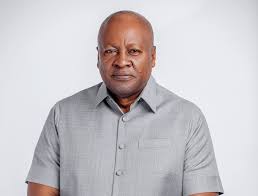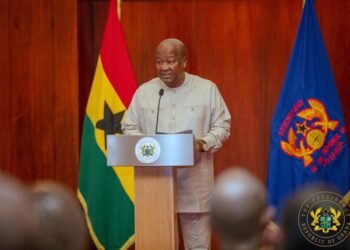As Ghana approaches the 2024 general elections, the Ghana Anti-Corruption Coalition (GACC) has intensified its call for the active involvement of young people in building a corruption-free society.
In the quest for a better future, corruption is one of the most pressing issues facing societies worldwide. This pervasive problem undermines public trust, stifles economic growth, and erodes the very fabric of democracy. This initiative emphasized the importance of public trust and upholding democratic principles, positioning the youth as pivotal in the fight against corruption and electoral violence.
Mrs. Beauty Emefa Nartey, Executive Secretary of GACC articulated a vision where the youth serve as champions against corruption. Her statements come after engaging approximately 16,000 Ghanaian youth, educating them on the detrimental effects of corruption and the significant roles they could play in fostering a just and equitable society.
“As we commemorate this important day, we ask the youth particularly, and Ghanaians in general, to guard against abuse of power and hold individuals and institutions to account.”
Mrs. Beauty Emefa Nartey, Executive Secretary of GACC
The youth possess a unique advantage in the fight against corruption: their ability to adapt and innovate. In an era where technology is rapidly reshaping our world, young individuals are often at the forefront of leveraging digital tools to expose corrupt practices and promote transparency.
From social media campaigns that highlight instances of graft to apps designed to track government spending, the creativity and technological savvy of the youth offer powerful weapons in the arsenal against corruption.
Moreover, the youth’s engagement in civic life is crucial for fostering a culture of accountability. By actively participating in governance processes, such as volunteering for local government initiatives or joining anti-corruption watchdog groups, young people can help ensure that public institutions operate with integrity and responsiveness to the needs of all citizens.
The involvement of young people is not just a matter of inclusion but a necessity for sustainable change. With over half of Ghana’s population under the age of 30, the youth are a formidable force that can drive the country towards integrity and transparency.
Mrs. Nartey’s call to action underscores the need for young Ghanaians to reject all forms of corrupt practices and electoral violence, reflecting a profound sense of patriotism and responsibility.
Impact of Corruption on Development

Corruption is a pervasive issue that has stymied the development of many African nations, including Ghana. Mrs. Nartey highlighted the severe consequences of corruption, such as inadequate health facilities, deteriorating roads, and a lack of public housing.
“Corruption results in poor governance and weakened institutions, undermining their legitimacy by negatively impacting citizens’ perceptions of fairness.”
Mrs. Beauty Emefa Nartey, Executive Secretary of GACC
The call for the youth’s active involvement in building a corruption-free society is not merely a plea for participation; it is a demand for leadership. Young people must seize the opportunity to shape a future where transparency, accountability, and integrity are the cornerstones of governance.
By doing so, they will not only safeguard the legacy of their elders but also pave the way for a brighter, more equitable tomorrow.
As Ghana approaches the 2024 general elections, the fight against corruption takes on added urgency. The integrity of these elections is paramount, and the youth have a significant role to play in ensuring that the process remains fair and transparent.
Mrs. Nartey emphasized the importance of resisting vote-buying and upholding the values of honesty, accountability, and integrity.
“We ask the youth particularly, and Ghanaians in general, to guard against abuse of power and hold individuals and institutions to account.”
Mrs. Beauty Emefa Nartey, Executive Secretary of GACC
The GACC’s initiatives aim to cultivate a new generation of informed and conscientious citizens who are committed to transparency and accountability.
The fight against corruption in Ghana requires the collective effort of all citizens, particularly the youth. By rejecting corrupt practices and opposing electoral violence, young Ghanaians can pave the way for a society where public trust and democratic principles are not only upheld but celebrated.
The journey towards a corruption-free Ghana is arduous, but with the youth at the forefront, there is hope for a brighter, more equitable future.
READ ALSO: Sustainable Debt Management Crucial for Ghana’s Economic Recovery- EGP



















